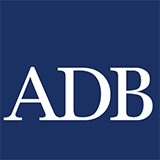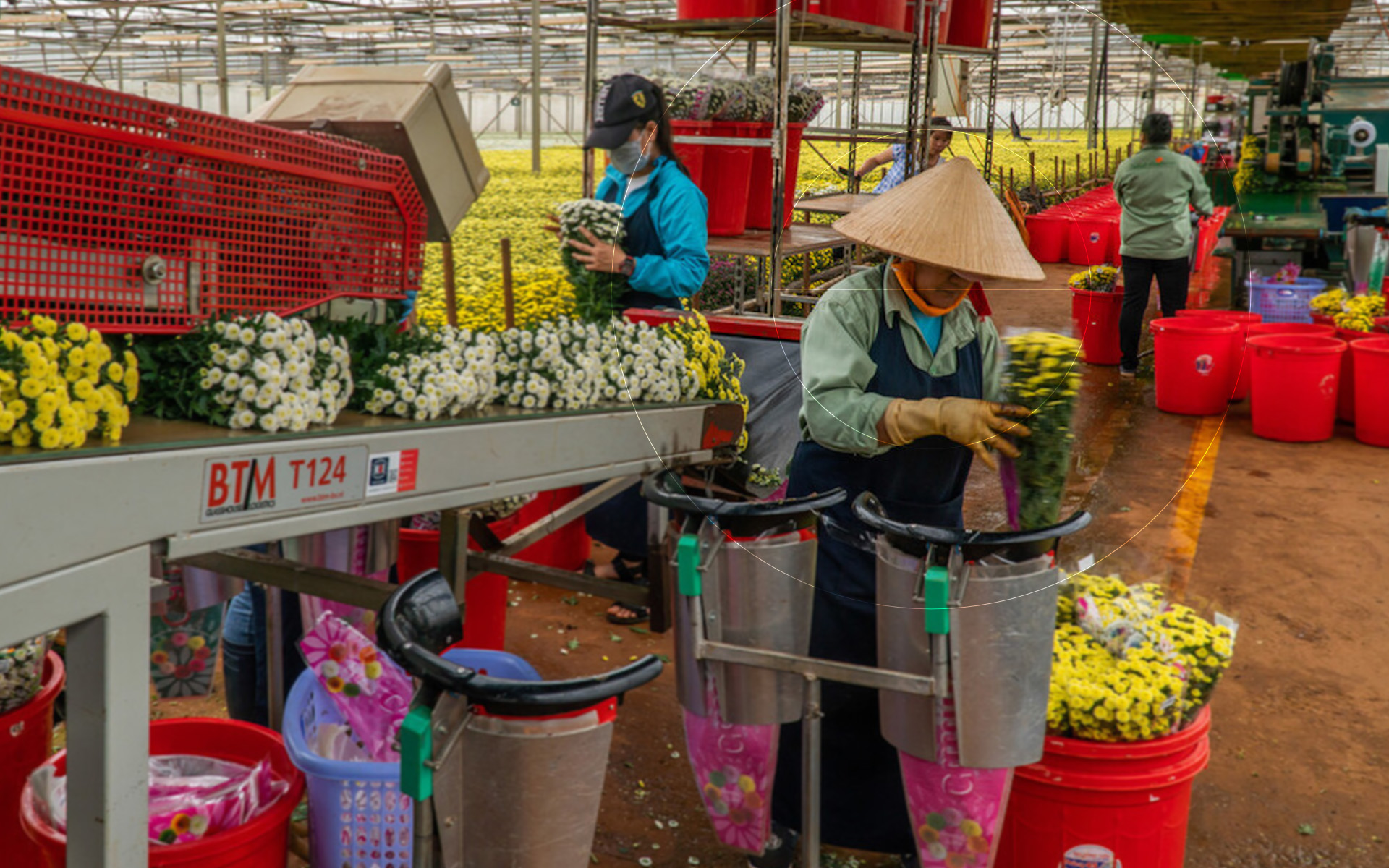In 2022, ADB’s developing member countries benefited from regional platforms and cooperation as they recovered and began regaining the economic advancements lost to the pandemic. More importantly, ADB and its financing partners continued to support transport connectivity and trade facilitation, regional information sharing, and initiatives to revitalize international tourism across Asia and the Pacific.
Operational Priority Thrusts
ADB’s Strategy 2030 will help developing member countries grow by pursuing
- greater and higher-quality connectivity between economies
- expanded global and regional trade and investment opportunities
- increased and diversified regional public goods
Despite post-COVID-19 life gradually resuming some normality, the adverse effects of prolonged border controls and travel restrictions linger, hindering the cross-border movement of people and goods. In addition, the unprecedented disruption of supply chains and rising inflation, particularly high food and energy prices, are a drag on economic growth. Regional platforms (such as the Association of Southeast Asian Nations, South Asian Association for Regional Cooperation Program, Greater Mekong Subregion Program, South Asia Subregional Economic Cooperation Program, and Central Asia Regional Economic Cooperation Program) have been critical in pushing action, whether around policy coordination, norms and standards, or implementation.
Partnerships are at the core of regional cooperation and integration—an approach crucial to driving social and economic recovery while building resilience against future shocks. ADB and partners know that expanded regional cooperation and integration (RCI) offers a way to get past this low-growth environment and have taken concrete steps to advance such cooperation. For example, in 2022, ADB supported the accelerated regional uptake of the COVID-19 vaccine and health cooperation among countries. ADB and its partners also provided solid economic recovery support, such as bolstering Central Asian small business manufacturing and resuming the safe movement of people and trade in the Pacific. ADB and partners supported the countries in implementing international agreements, aligning with international standards, and accelerating digital trade.
“Partnerships are essential to reinforce RCI operations across DMCs as ADB promotes wider, deeper, and more open regional cooperation. In 2022, ADB continued to leverage its subregional programs to expand cooperation with other development partners,” said Cyn-Young Park, chief of ADB’s RCI thematic group.
In 2022, ADB approved 47 cofinanced sovereign projects and technical assistance that included RCI elements in their design. Among the cofinanciers, the Republic of Korea e-Asia and Knowledge Partnership Fund and the Japan Fund for Prosperous and Resilient Asia and the Pacific cofinanced the most projects and technical assistance. The sectors with the most RCI-related projects are public sector management and agriculture and natural resources. The subregions with the most projects with RCI-related elements are Southeast Asia and the Pacific.
Partnerships are essential to reinforce RCI operations across DMCs as ADB promotes wider, deeper, and more open regional cooperation. In 2022, ADB continued to leverage its subregional programs to expand cooperation with other development partners.
Cyn-Young Parkchief of RCI thematic group, ADB
Greater Connectivity
ADB and its partners invest in high-quality, climate-friendly and efficient transport infrastructure, including their necessary support system like transport facilitation agreements and cross-border policy harmonization. They continue to improve connectivity in the region and enhance the competitiveness of developing member countries (DMCs) by addressing cross-border infrastructure needs.
For example, in Uzbekistan, the People’s Republic of China Poverty Reduction and Regional Cooperation Fund is providing supplementary cofinancing to the Preparing Road Modernization Projects. The technical assistance is preparing two investment projects to upgrade sections of the Guzar–Bukhara–Nukus–Beyneu Road. The road improvements will contribute to Uzbekistan’s road connectivity as a transport hub with the Central Asia Regional Economic Cooperation (CAREC) transport corridors. In Kazakhstan, the Republic of Korea e-Asia and Knowledge Partnership Fund provided supplementary cofinancing to the Preparing the CAREC Corridors 3 and 6 Turkistan Road Network Improvement programs. The technical assistance supports the first phase of preparatory activities to help scope and structure the proposed investment project, CAREC Corridors 3 and 6 Turkistan Road Network Improvement. The TA specifically prepares a strategic procurement plan, recommends a suitable contracting modality, and collects environmental and social safeguards data.
By addressing cross-border needs, ADB and its partners improve connectivity in the region and enhance the competitiveness of DMCs.
The National Trade Corridor Highway Investment Program is building an expressway in Pakistan that will improve local travel and connect the country to other Central Asian countries.
Learn more
More Opportunities for Trade and Investment
To help enable economic growth and create jobs with more trade and investment opportunities, partners are supporting the region to be efficiently connected as an important prerequisite to a more robust and deeper regional cooperation and integration. Part of this work is helping developing member countries implement regional and global trade agreements, promoting business- and trade-friendly policies, and reducing risks among financial intermediaries.
For example, the Republic of Korea e-Asia and Knowledge Partnership Fund (EAKPF) is providing additional financing to the Better Customs for Better Client Services in Central Asia Regional Economic Cooperation Countries, which aims to digitize customs services and develop business-to-customs platforms. The EAKPF is also supporting the technical assistance, Promoting Regional Partnerships for Adoption of Fintech and Digital Payments Systems. The program provides institutional support to the National Payments Corporation of India to accelerate digital payments and Asian financial technology (fintech) cooperation.
The High-Level Technology Fund, in turn, is cofinancing the regional Digital Solutions for Optimizing Port Efficiency In Developing Countries program that supports research on smart ports and how smart systems can increase port efficiency, economic resilience, and regional trade. In Samoa, Australia, New Zealand, and the World Bank cofinanced the Strengthening Macroeconomic Resilience Program. The project supports policy reforms to help increase transnational financial transactions, enhance labor standards to better protect migrant workers, and reduce barriers to foreign investment. Both projects focus strongly on helping prepare for the new realities of tourism, trade, and people mobility around the subregion, following about 2 years of total border closure, including safeguarding regional health security through the measures and reforms. Likewise, the Green Climate Fund provided supplementary cofinancing to Promoting an Interconnected, Inclusive, and Resilient Association of Southeast Asian Nations Capital Market.
To prepare for deeper and more robust regional cooperation and integration, ADB and partners are helping developing member countries implement regional and global trade agreements, promote business and trade-friendly policies, and reduce risks among financial intermediaries.
The South Asia Subregional Economic Cooperation Port Access Elevated Highway Project in Sri Lanka will be boosting domestic and regional trade by improving last-mile connectivity between the country's expressway network and international port.
Learn moreMore Diverse Regional Public Goods
Encouraging the sustainable economic mainstreaming of local businesses and addressing cross-border opportunities and challenges like public health, climate change, and information sharing are some of our partners’ priority areas in the region. Regional public goods positively influence the impact of national and global public goods by encouraging positive spillovers to neighboring countries.
For example, additional cofinancing from the Japan Fund for Prosperous and Resilient Asia and the Pacific (JFPR), People’s Republic of China Poverty Reduction and Regional Cooperation Fund, and Republic of Korea e-Asia and Knowledge Partnership Fund was approved for the regional project, Mitigating the Impact of COVID-19 through Community-Led Interventions. The project engages civil society organizations in Armenia, Cambodia, the Cook Islands, the Lao People’s Democratic Republic, Mongolia, the Philippines, and Thailand to implement measures to prepare for and respond to needs arising from COVID-19. In the Pacific, the JFPR also cofinanced the Enhancing COVID-19 Preparedness for Tourism Recovery project. The project puts the necessary infrastructure, systems, and testing procedures in place to ensure the safe movement of people and trade in services (tourism) through the international hub of Nadi International Airport, contributing to a more rapid return to business-as-usual intra- and inter-regional trade activities.
Digitizing national health financing, insurance information, and management systems will deliver more accessible and affordable health care, potentially benefiting millions, particularly poor and vulnerable people.
Learn moreMoving Forward
Regional cooperation and integration is one of the priority areas for ADB in 2023. Moving forward, achieving ADB’s goals in its operational focus areas, such as climate change, food security, and digitalization, cannot be achieved without enhancing this.
As the risk of segmentation persists, ADB should maximize its convening power across all sectors and themes to support regional and subregional programs and promote open regional cooperation for regional prosperity.


